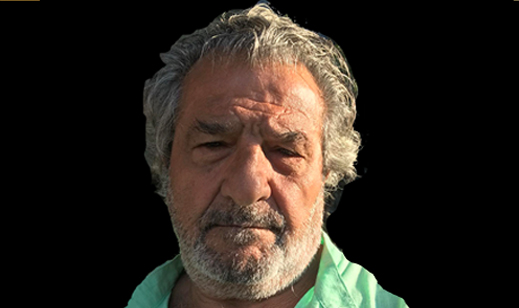We’ve always disagreed politically, but is a homogenous viewpoint really an informed opinion?

The Guardian / Poppy Noor – @PoppyNoor
This week, chat-show host Ellen DeGeneres received criticism for her friendship with former President George W Bush. A liberal who enjoys spending time with the man who waged an illegal war in Iraq? How hypocritical, people said.
More interesting to me is the broader debate it sparked. Is it really possible to go throughout life never making any friends who differ from us politically? Is it even right to do so?
At this point, I should confess that in 2015 one of my best friends voted for the far-right UK Independence Party. Yes, that party. The one which campaigned for Brexit and had posters depicting queues of brown people lining up for state services as a symbol of Britain reaching its breaking point.
I, on the other hand, voted to remain. I’m a socialist from an immigrant family who grew up on benefits, so I took those posters personally.
My family worked around the clock when I was growing up, but the triple whammy of having an immigrant father, a mentally ill mother, and being poor to start with made a lot of their efforts futile. No amount of hard work would erase my Dad’s criminal record, and no amount of hours he worked as a low-paid, illegal mini-cab driver could ever get us out of poverty. As a result, I never quite bought the idea of meritocracy.
When I turned 16, I changed schools. The high school I went to wasn’t fancy, but it was in an area more affluent than where I’d grown up. My friend, let’s call him Michael, felt like one of the only people there who understood me.
We always disagreed politically, but he never grimaced when, after I became homeless aged 16, we started having to hang out in homeless hostels all the time. He didn’t find my working class accent edgy, because he had one too. He didn’t see being friends with a working class brown person as charity, because people like me weren’t novel to him.
We became even closer when both of us faced huge life changes. I had gone from living with my huge, loving, but destructive, family to living with strangers, while he was living with a relative who drove him crazy. He remembers this period as the both of us “discovering the need for autonomy and independence from our families at the same time”.
It seemed natural that we would become friends but today, because of our respective political stances, we have to apologise for it.
“I often have to use our friendship as evidence that you can be pleasant to people who aren’t like you,” says Michael, who is frustrated at always being asked about it.
I feel frustrated too. After high school I went to Cambridge, and my social circle changed overnight. I was suddenly surrounded by people who grew up with nannies, holiday homes and trust funds.
I made friends there, too. Sometimes because they were the only people who would speak to me, or in other cases because they were the only other brown person around. I never had the opportunity to check their politics and choose a “better fit” first.
It’s not that I’m not judgmental, or that I hold my political views lightly. I can be a nightmare to be around when someone doesn’t agree with my views, and I don’t believe that we need to be nice to everyone. Sometimes, living your politics means challenging those around you, even if they are your friend.
But in my experience, it’s not always as simple as “left” versus “right”. I know a lot of people who say they share my politics while acting completely differently – talking down to waitstaff, for example, or being condescending to working class people for being less educated than them. Conversely, I know people who call themselves rightwing who have an egalitarian disposition in their day-to-day lives.
Michael puts it this way: “There are facade politics and then there are real politics: with friends, you see the reality of their politics – perhaps politics they aren’t even aware of.”
To illustrate his point, he tells me about a house-party he attended after Britain decided to leave the EU. Everyone was talking about how they voted, happily assuming that they were in the safe company of friends who all think the same. They were all creative millennials working in film or fashion, and most of them were self-proclaimed lefties.
That’s when Michael confessed his voting record: he had voted for the UK independence party because he wanted a referendum on Europe, as he sees the EU has a potentially undemocratic entity.
“It totally killed the vibe. Everyone turned on me, calling me racist,” he said.
He came to another party at mine after that night, during which Brexit was brought up again. This time, people seemed interested in understanding his worldview. He puts that down to the different social circles my friends are from – so wildly varied that it would be hard to force a homogenous viewpoint.
“Maybe they were pretending, but they realised I was different to them and they were still able to be pleasant to me,” he said.
What made him most angry was that he didn’t believe that the first group of people even really disagreed with him at all.
“How could they, if they didn’t listen to what I had to say?” he says.
Instead, he believes they closed ranks to signal to others in the room that they did not associate with people like him, and that in some way made them morally virtuous.
When I asked him if he thinks that left-wingers are so rude to him because the stakes are so high, he replied that each side just views the stakes differently.
Having a friend who thinks differently to you can be a chore. It can be infuriating and, at times, make you question your values. But, as Michael describes it, it’s never about meeting in the middle.
Sometimes, it’s about informing your own opinion by understanding the opposite, but most of the time it’s not an intellectual exercise. Our friendship runs deep enough that his politics are just a tiny part of who he is to me. Some people see him as Michael the Ukiper. I see him as Michael, the guy who knew me before my middle-class accent and feminist values; the guy who used to speak late night on the phone to my schizophrenic mother when she was lonely; the guy who knew me before I got straight As in school and went to Cambridge.
For much of my adult life, I have had to wear a mask around people. When me and Michael hang out, I can just be myself.
But in the meantime, I am also desperate for others to know that having friends who vote differently to me doesn’t compromise my political views, or make me morally inferior.
Michael finds that funny: “I think it’s essential to have friends who are different. How can you think new things unless you are encountering difference of opinion?”
Topics : Life and style / Relationships / features





1 comment
323789 360104You made some respectable points there. I looked on the internet for the problem and found many people will go along with together with your internet site. 764314